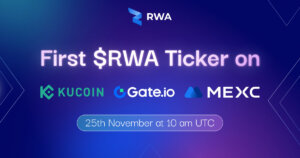 Cryptocurrency’s wild west is as wild as ever, but you can stay safe
Cryptocurrency’s wild west is as wild as ever, but you can stay safe Cryptocurrency’s wild west is as wild as ever, but you can stay safe

Cover art/illustration via CryptoSlate. Image includes combined content which may include AI-generated content.
One of the first things we learn about blockchain, and by extension, cryptocurrencies, is that they are unhackable. You cannot overwrite a transaction; you can not hide or delete it; it is immutable and permanent – a perfect system for financial transaction.
However, the cryptocurrency space remains a dangerous one for people and their money. News is constantly flowing in of cash getting stolen, going missing, being hacked, or going under with exchanges.
Therein lies the point, the blockchain technology may be sound and hack-proof, but it still relies on other third-party companies, mostly in the form of exchanges, which are susceptible to all the dangers of the dark side of the industry.
Just like you can’t blame the dollar for your bank being robbed, you cannot blame blockchain for cryptocurrency hacks – but you sure as hell can blame the exchange! That is why it is essential to understand the nature of exchanges and third-party cryptocurrency exchanges because from there, you will understand how to keep safe.
Trust the tech, not the people
The idea that the blockchain is unhackable is not entirely accurate. There are instances where the technology can be compromised, and it may not work in the manner it is supposed to. If we take Bitcoin, for example, as a proof-of-work blockchain, it is susceptible to what is known as a 51 percent attack.
A 51 percent attack occurs when an individual or a group working together manage to overcome the decentralization of a blockchain and usurps over 50 percent of the mining power. With that power, they are in control which transactions are verified and which are not, and that allows them to control the blockchain.
This has happened with smaller chains before, but not with Bitcoin, and is extremely hard to get right on a fully decentralized and high-hashing blockchain.
Still, in terms of hacking the blockchain to steal your coins in a fundamental sense, this is near impossible, and instead, when money gets taken from people, it is the fault of people and not the technology.
Exchanges are the most common entry point for people onto the blockchain, and they form the structure to use, trade, move, and spend cryptocurrencies. There are two main differentiations in exchanges, those that are centralized, and those that are not.
In centralized exchanges, you have many similarities to banks in that a company runs how coins are moved and transferred on the blockchain. They have access to your coins and can virtually do what they please with them – this is where the problem comes.
Centralized exchanges are relying on their ways of keeping cryptocurrency safe, rather than using pure blockchain. This means that their systems and processes can be figured out and hacked by bad actors who then get access to people’s funds.
We have seen significant hacks so often, and they are almost always because of human error coming out of a centralized exchange. Mt. Gox, Coincheck, Bithumb, even Binance have all been hacked due to some error along the way.
Hacks are not the only thing to fear either. Centralized exchanges operate like a bank, yet they are not regulated like a bank. This is extremely worrying because if they fail, or collapse, people’s funds are not protected by laws and regulations of the country.
Even more concerning is that these exchanges are so unregulated that they can often disappear and do an exit strategy with little repercussion, which also can leave their customers out of pocket.
Staying safe
On the other side of exchanges are decentralized exchanges – or DEXs. These exchanges also give people access to the blockchain and cryptocurrency, but they do so in a way that leaves full control to the individual and the technology.
Users are in control of their private key and can thus use their crypto to trade, spend, send, and receive using the blockchain only – no form of custodial service. Immediately, there is no room for coins to go missing due to third-party negligence as there is no custody of coins by a third.
Using DEXs allows customers to be the start and the end of their cryptocurrency journey, meaning that any hack or loss of coins can only be down to negligence from the user. This can also happen, and that is why it is essential to be smart beyond merely relying on decentralized, non-custodial exchanges.
Another good piece of crypto safety practice is the use of hardware wallets for substantial amounts of money. Even without custodial concerns, hackers can find a way to your private key and into your wallet if they have access to you, and the easiest way to have access is through the internet.
Hardware wallets mostly take your coins off the grid. They are stored in what is known as cold storage and are not accessible on the internet, ensuring there is almost no chance of a hacker getting to them. But! Don’t misplace that hardware wallet because it will be impossible to get the coins back.
Be smart
It is pretty simple to fall prey to hackers and bad actors in this Wild West arena of cryptocurrency, but by the same margin, it is easy to stay safe.
Basic rules like: being in control of your private key; keeping significant sums of money in cold storage; not trusting third-party custodial cryptocurrency services, and looking after your hardware wallet, can ensure you do not become a victim.



 Farside Investors
Farside Investors 


 CoinGlass
CoinGlass 



















































































